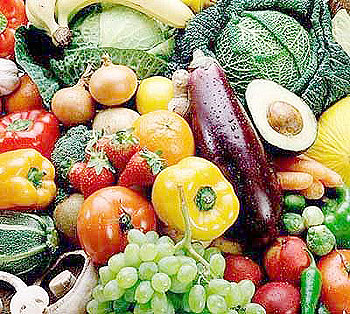Constipation is a health complaint in which the person is unable to expel the body’s solid waste. People with constipation express difficult or infrequent bowel movement. People suffering from this condition normally face difficulty to pass stool out of the body as it becomes dry and hard. Emptying the bowels can be very painful and usually causes lot of discomfort.


Constipation is a health complaint in which the person is unable to expel the body’s solid waste. People with constipation express difficult or infrequent bowel movement. People suffering from this condition normally face difficulty to pass stool out of the body as it becomes dry and hard. Emptying the bowels can be very painful and usually causes lot of discomfort.
There are food staffs that one can eat to prevent or cure constipation. Poor feeding mechanism among other factors is the major cause of constipation. It has been noted that inadequate water and lack of fibre in the diet are the common causes of constipation.
Increasing fibre and water intake helps to relieve constipation. Increasing dietary fibre is an effective way to treat this condition. Fibre not only alleviates chronic constipation, but, also promotes overall intestinal health. People suffering from constipation should eat foods high in fibre. Food staffs such as Vegetables, whole grains and fruits are considered to be rich in fibre.
Traditionally people have considered feeding on meat and other spicy food substances as the most precious meals. Luckily enough our people have began changing their feeding lifestyles and vegetables are now highly considered in our societies. This has come through a series of awareness campaigns on feeding patterns. However, sometimes lack of the financial muscle to buy meat regularly has been a precipitating factor.
Vegetables on average have a pleasant taste that could suit everybody. There are so many different types of vegetables that there is something to suit everybody’s taste buds. Among the most common vegetables we have legumes such as green beans, pea nuts and ground nuts.
Leafy vegetables where you find cabbage, spinach and others to mention but a few constitute the most liked vegetables in our diet. Leafy vegetables have a high content of vitamins D, A, E and K. Apart from that are also rich in fibre, iron, calcium, potassium, folic acid, and magnesium.
Root vegetables such as carrots, potatoes are known to be rich sources of fibre, and generally contain high levels of Vitamin A with great low calorie vegetables.
Fresh fruits such as watermelons have high water content and help combat constipation. Cereals such as rice and Maize are also good sources of fibre. However high fat foods such as meat, cheese and eggs should be avoided as they are low in fibre. Boosting fibre intake also helps to keep the digestive system healthy.
Fibre is an important part of a balanced diet that can prevent constipation. A fibre rich diet can increase the size of the stool and speed up its passage through the body. In case of difficulty in digesting food rich in fibre, a better option to manage constipation is to eat soluble fibre as it can be easily digested.
Dried fruits such as prunes are an excellent source of soluble fibre. Soluble fibre is also contained in apples.
Besides, Constipation is an indication of dehydration that means sufficient water is not being consumed in a day. Drinking at least one and half two litres of purified water everyday helps to soften the stool and ease the symptoms of constipation.
Inadequate water consumption results into dry, hard faeces that are difficult to excrete. Adequate intake of fluids that include fruit juice play a crucial role in moving the hardened stool through the intestine. Tea or coffee are not fluids and should be avoided. Drinking carbonated or aerated drinks is also not recommended. A glass of water, taken early in the morning, can help in maintaining normal bowel movements.
To maximize benefits of fibre, it is essential to drink sufficient water and also exercise regularly. Exercising keeps the faeces or body’s solid waste soft thereby making it easy to pass through the intestines. Lack of exercise or inactivity can also increase the risk of constipation.
Eat right to avoid constipation


